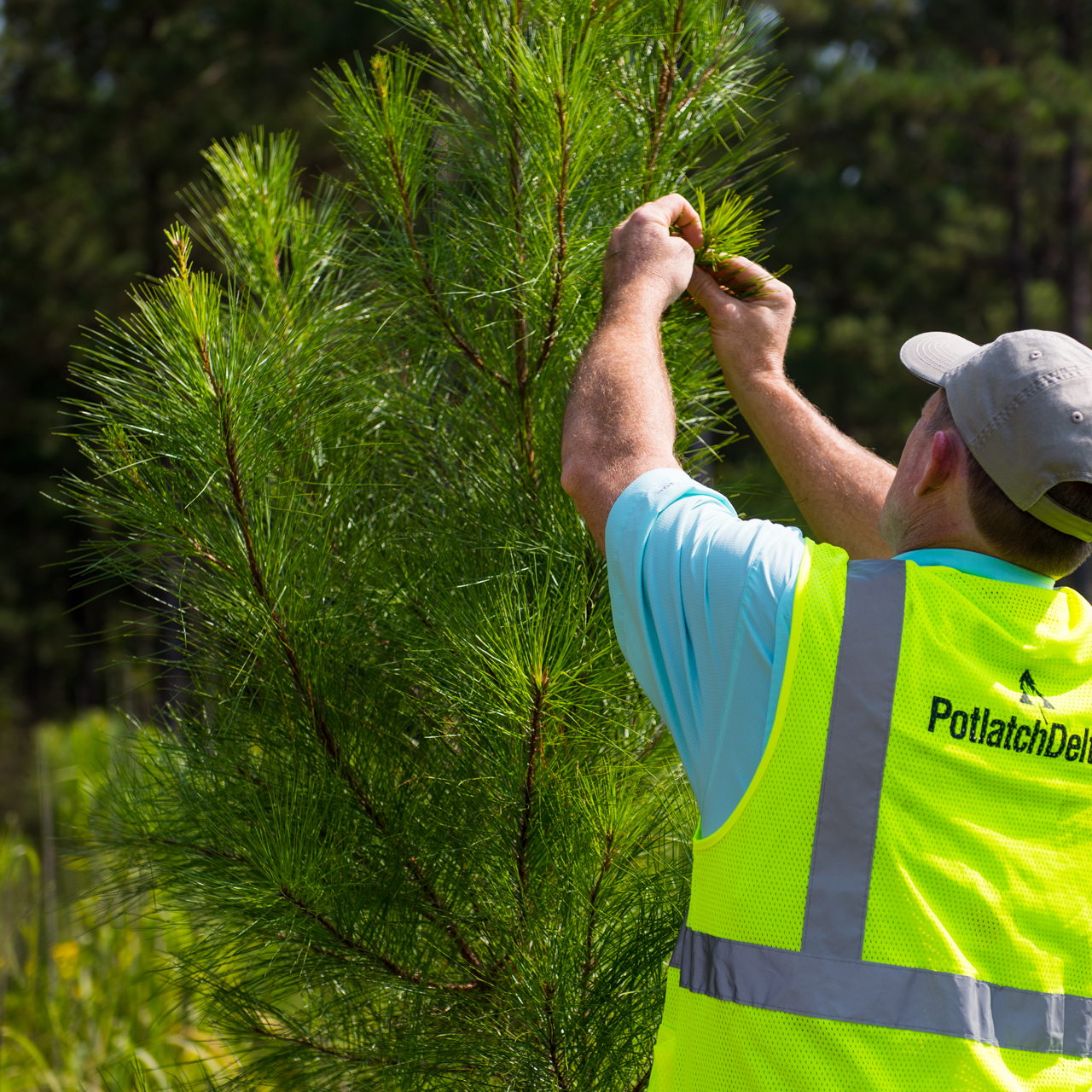Timberlands Best Management Practices
NORTHAMPTON, MA / ACCESSWIRE / April 5, 2024 / PotlatchDeltic
Our timberland management practices are driven by our objectives for sustainable timberland production and for environmental protection. Utilizing our decades of timberland management expertise, we have developed internal Best Management Practices (BMPs) that include regulatory and certification frameworks and provide a consistent, tested means of implementing environmental protection. Our timberland management requirements are used as a proactive approach to maintain the health of forest soil, protect water quality and aquatic habitat, and promote biodiversity. Our foresters implement BMPs as part of our environmental management system during all phases of forest management and across all our timberlands. We require that all contractors implement applicable BMPs during forest management activities on our lands and in our mill supply chains. The BMPs are evaluated in formal studies, field tested, revised, and adapted over time to continuously improve their effectiveness.
Our BMPs are influenced by a wide range of federal, state, and local legislation and regulations. At the federal level, the 1972 Clean Water Act (CWA) and Endangered Species Act of 1973 (ESA) are the primary laws surrounding environmental protection for private working forests. Federal measures are combined with state water quality BMPs that establish standards for logging, road building, reforestation, streamside protection, and other activities. Alabama, Arkansas, Georgia, Louisiana, Mississippi, and South Carolina are among the states that have voluntary BMPs. In Idaho, BMPs are required under the Idaho Forest Practices Act (FPA). Standards and criteria under third-party forest certification programs such as the Sustainable Forestry Initiative® or Forest Stewardship Council® BMPs and measures beyond the federal and state requirements ensure the conservation and proper management of timberlands. BMP implementation monitoring is a requirement of our environmental management system, and we conduct annual internal and external third- party audits of compliance.
FORWARD-LOOKING STATEMENTS
This release contains certain forward-looking statements within the meaning of the federal securities laws. Words such as "annual," "campaign," "continuously," "objective," "over time," and similar expressions are intended to identify such forward-looking statements. These statements reflect management's views of future events based on assumptions and are therefore subject to known and unknown risks, uncertainties, and other factors, and are not guarantees of future conduct, results, or policies. Please view the Cautionary Statement Regarding Forward-Looking Information on page 134 of PotlatchDeltic's 2022 ESG Report.

View additional multimedia and more ESG storytelling from PotlatchDeltic on 3blmedia.com.
Contact Info:
Spokesperson: PotlatchDeltic
Website: https://www.3blmedia.com/profiles/potlatchdeltic
Email: info@3blmedia.com
SOURCE: PotlatchDeltic
View the original press release on accesswire.com







